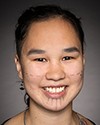Thank you, Ms. Bérubé.
Communities have had pandemic plans for some time. Since H1N1, communities, as part of their contribution agreements, were expected to have a plan to respond to a communicable disease emergency. Unfortunately, because there hasn't been urgency over the last few years, that was often not followed up on and communities were found with an empty basket. Things they had stored away to stockpile had been utilized in other ways. Individuals who had skills or knowledge had moved on or gotten older. It has been an exercise in building in-community capacity and supporting community-led nursing staff, for example, health directors, leadership and others, to better understand what they were up against, what the battle was and the decisions they had to make.
They're self-determining nations. My job is to give them the best clinical information to support those decisions and, in my partnership with provincial and regional staff, to make sure there were supports available from the clinical community to make sure that if there was a need, it could be satisfied. We have a very unique situation with our tripartite agreements, which have been in place for some time now, and having the First Nations Health Authority to centralize those resources has been very important.





